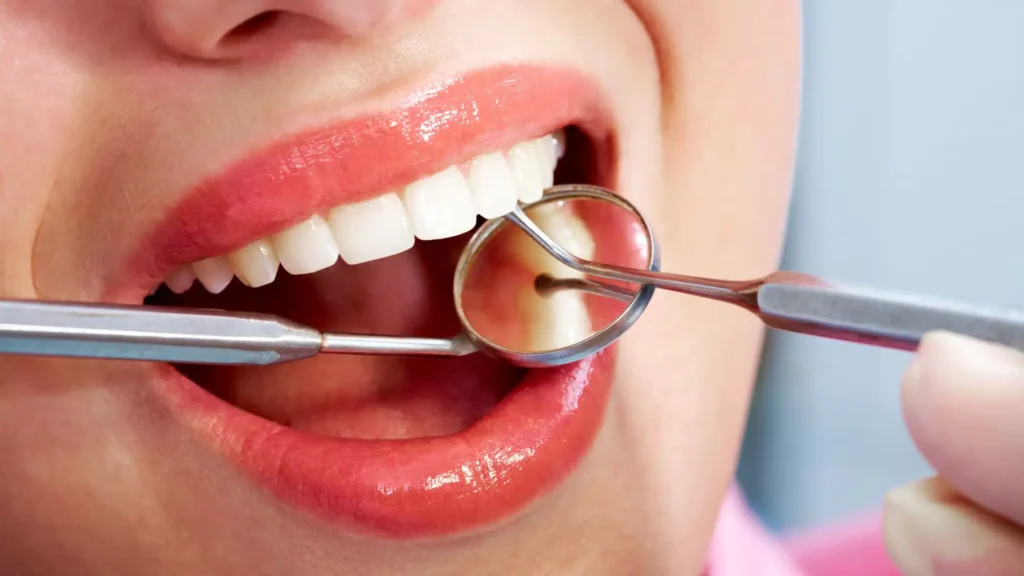
Dental health is a crucial aspect of overall well-being. A healthy mouth not only contributes to a beautiful smile but also plays a significant role in digestion, speech, and general health. Poor oral hygiene can lead to serious health issues, including heart disease, diabetes, and respiratory infections. This article explores the importance of 智慧齒收費 care, common dental problems, treatments, and modern advancements in dentistry.
The Importance of Good Oral Hygiene
Maintaining good oral hygiene is essential for preventing dental problems such as cavities, gum disease, and bad breath. It also helps in keeping teeth strong and functional throughout life. Good oral hygiene includes regular brushing, flossing, and professional dental check-ups.
Benefits of Maintaining Oral Hygiene
- Prevents Tooth Decay and Cavities: Proper brushing and flossing remove plaque and bacteria that cause cavities.
- Reduces Risk of Gum Disease: Gum infections can lead to tooth loss and systemic health issues.
- Enhances Overall Health: Poor oral health has been linked to cardiovascular diseases, diabetes, and respiratory infections.
- Boosts Self-Esteem and Confidence: A clean, healthy smile contributes to positive self-image and social interactions.
- Saves Money on Costly Dental Treatments: Preventive care reduces the need for expensive procedures like root canals and implants.
Common Dental Problems
Despite advancements in dental care, many people still suffer from common oral health issues. Understanding these problems helps in their prevention and treatment.
1. Cavities (Tooth Decay)
Cavities occur due to plaque buildup, which produces acids that erode tooth enamel. If untreated, cavities can lead to severe tooth pain and infections.
Prevention and Treatment:
- Brushing twice daily with fluoride toothpaste
- Reducing sugar intake
- Regular dental check-ups
- Dental fillings or crowns for severe decay
2. Gum Disease (Periodontal Disease)
Gum disease is an infection of the gums that can cause bleeding, swelling, and tooth loss. It is classified into gingivitis (mild form) and periodontitis (severe form).
Prevention and Treatment:
- Regular brushing and flossing
- Professional deep cleaning (scaling and root planing)
- Medications or surgery for severe cases
3. Bad Breath (Halitosis)
Chronic bad breath is often caused by bacteria in the mouth, gum disease, cavities, or certain medical conditions.
Prevention and Treatment:
- Brushing and flossing regularly
- Staying hydrated
- Using mouthwash
- Treating underlying dental problems
4. Tooth Sensitivity
Tooth sensitivity occurs when enamel wears down, exposing the underlying dentin, causing pain when consuming hot, cold, or sweet foods.
Prevention and Treatment:
- Using desensitizing toothpaste
- Avoiding acidic foods
- Applying fluoride treatments
- Dental bonding or crowns for severe cases
5. Tooth Loss
Tooth loss can result from cavities, gum disease, or trauma. It affects chewing ability and self-confidence.
Prevention and Treatment:
- Practicing good oral hygiene
- Wearing mouthguards during sports
- Replacing lost teeth with implants, bridges, or dentures
6. Oral Cancer
Oral cancer affects the lips, tongue, gums, and throat. Early detection is crucial for successful treatment.
Prevention and Treatment:
- Avoiding tobacco and excessive alcohol consumption
- Regular dental check-ups
- Surgery, radiation, or chemotherapy for treatment
Dental Treatments and Procedures
Advancements in dentistry have made various treatments more effective and comfortable.
1. Professional Teeth Cleaning
Dentists use special tools to remove plaque and tartar, preventing cavities and gum disease.
2. Fillings
Dental fillings restore decayed teeth using materials like composite resin, amalgam, or ceramic.
3. Root Canal Therapy
A root canal removes infected tissue from inside a tooth, preventing further infection and pain.
4. Tooth Extractions
Severely damaged or decayed teeth may need to be removed to maintain oral health.
5. Dental Crowns
Crowns cover damaged teeth to restore their shape, strength, and appearance.
6. Dental Implants
Implants replace missing teeth with artificial roots and crowns, providing a long-lasting solution.
7. Braces and Orthodontic Treatments
Braces and clear aligners (like Invisalign) straighten teeth and correct bite issues.
8. Teeth Whitening
Professional whitening treatments remove stains and discoloration for a brighter smile.
Advances in Dentistry
Modern technology has significantly improved dental care, making treatments more efficient and comfortable.
1. Laser Dentistry
Lasers are used for cavity detection, gum disease treatment, and teeth whitening, reducing pain and healing time.
2. Digital Dentistry
3D scanning and digital impressions improve the accuracy of dental procedures like crowns, bridges, and dentures.
3. AI in Dentistry
Artificial intelligence assists in diagnostics, treatment planning, and predictive analysis of oral health conditions.
4. Biocompatible Materials
New materials like zirconia and bioactive glass enhance the durability and aesthetics of dental restorations.
5. Stem Cell Research
Researchers are exploring the use of stem cells for tooth regeneration, which could potentially eliminate the need for implants in the future.
How to Maintain Good Oral Health
- Brush and Floss Daily: Use fluoride toothpaste and floss to remove food particles and plaque.
- Visit the Dentist Regularly: Schedule check-ups and cleanings every six months.
- Eat a Healthy Diet: Limit sugary foods and consume calcium-rich foods for strong teeth.
- Avoid Tobacco and Excessive Alcohol: These increase the risk of gum disease and oral cancer.
- Stay Hydrated: Drinking water helps wash away bacteria and food particles.
- Use a Mouthguard: Protect your teeth from injuries during sports.
Conclusion
Dental health is an essential component of overall well-being. Preventive care, regular dental check-ups, and modern treatments help maintain strong, healthy teeth and gums. With advancements in dentistry, treatments are becoming more efficient and comfortable, making dental care more accessible to everyone. By prioritizing oral hygiene, individuals can enjoy a confident smile and a healthier life.
Leave a Reply